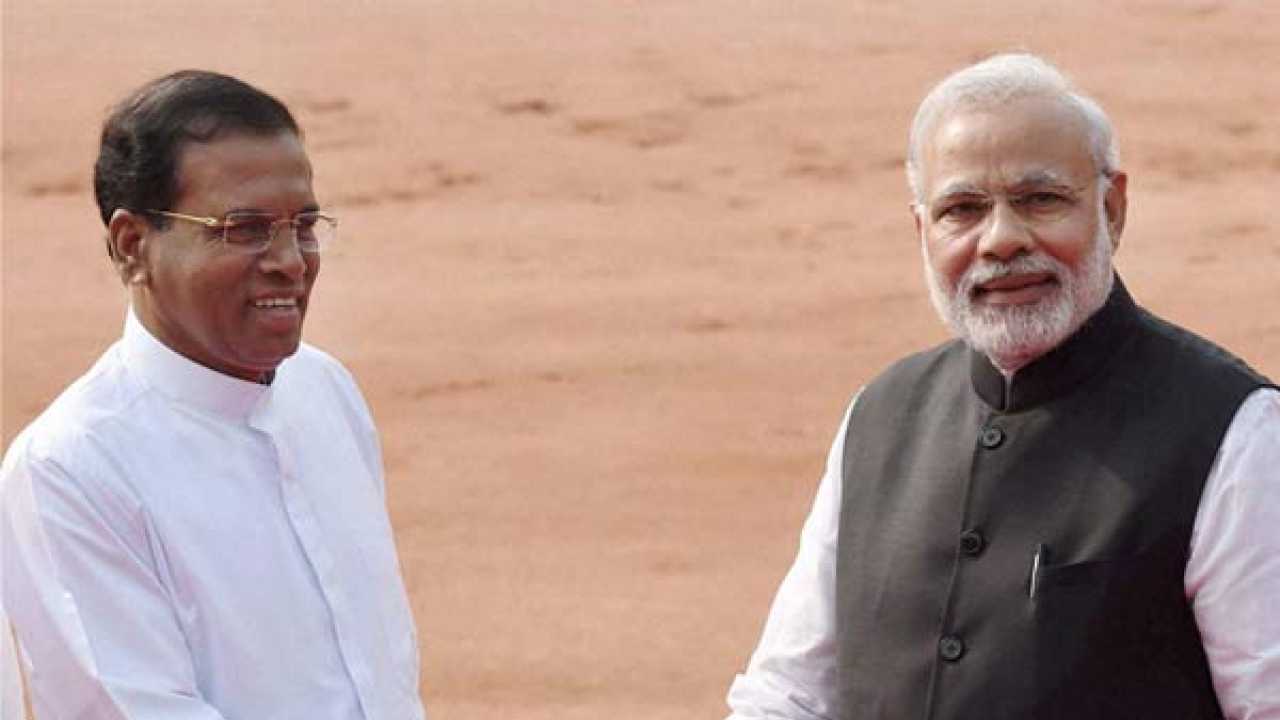
India’s relations with Sri Lanka, which had been marked by too many points of friction in recent times, especially in the last phase of the UPA and the Mahinda Rajapaksa regimes, seems to be on the upswing again. The high-level exchanges -- which would see Prime Minister Narendra Modi in Sri Lanka next week close on the heels of Sri Lanka’s new President Maithripala Sirisena’s four-day visit to Delhi in February – reflect the urge for a closer, warmer relationship on both sides.
This new chapter that has opened under the new leadership in both countries holds out hope of better days for the bilateral relationship if the challenges are faced squarely while seizing the opportunities that would be mutually beneficial.
To begin with, the enthusiasm for a closer relationship is underscored by Modi’s visit, which would be the first to the island republic by an Indian Prime Minister since Rajiv Gandhi travelled to Colombo in 1987. Significantly, the issues arising out the India-Sri Lanka Peace Agreement that Rajiv Gandhi signed with the then President JR Jayawardene remain unresolved to this day. Therein lies the foremost and biggest challenge to both Sirisena and Modi, for without a Tamil-Sinhala reconciliation and rehabilitation of the victims of the prolonged civil war, neither of the leaders can move forward to other items on the bilateral agenda.
It is perhaps in acknowledgement of this that the Government of India is keen for Modi to travel to Jaffna in the Tamil-dominated north and Trincomalee in the east of the island. A visit to Jaffna would be a first by an Indian Prime Minister, and its significance cannot be overstated. Such a visit would provide new impetus for reconciliation by winning the confidence of Tamils on both sides of the Palk Straits and stress that Colombo has no reservations about India’s show of support for Sri Lankan Tamils in their own territory. It would be a boost for Tamils, Tamil-Sinhala reconciliation and India-Sri Lanka relationship. However, this is not without a catch.
The catch, if Modi goes to Jaffna, is that Colombo would capitalise on it to blunt the campaign – mounted by Tamils in the Northern Province, the Tamil diaspora and the Tamil parties in India -- for an international investigation into the alleged war crimes. The US has obliged Sri Lanka by ensuring that a damaging UN report on alleged war crimes is not released now and that there is no resolution to censure Colombo in the UN Human Rights Council. This means that, unlike during the time of the UPA, Sirisena no longer needs India as an ally against the “international community” in this matter. To that extent the leverage enjoyed by Modi sarkar over the new government in Sri Lanka is less.
Therefore, this is a visit that Delhi would have to carefully script by plotting every step just as Sirisena had done by sending his foreign minister to Delhi on a meticulous planning mission. And, it seems that India might be doing likewise because External Affairs Minister Sushma Swaraj would be going on a preparatory mission.
With Sirisena enjoying an exemplary relationship, for now, with the US and the West, Modi’s visit would be watched for whether he is able to secure a commitment on implementation of the 13th Amendment to the Sri Lankan Constitution and devolution of powers. The Tamil issue is the biggest obstacle to a friction-free relationship. How Modi and Sirisena seek to resolve the Tamil issue, what framework they agree upon and their plan for the repatriation of Tamil refugees in India would decide the direction, depth and warmth of bilateral ties.
The author is an independent political and foreign affairs commentator based in New Delhi